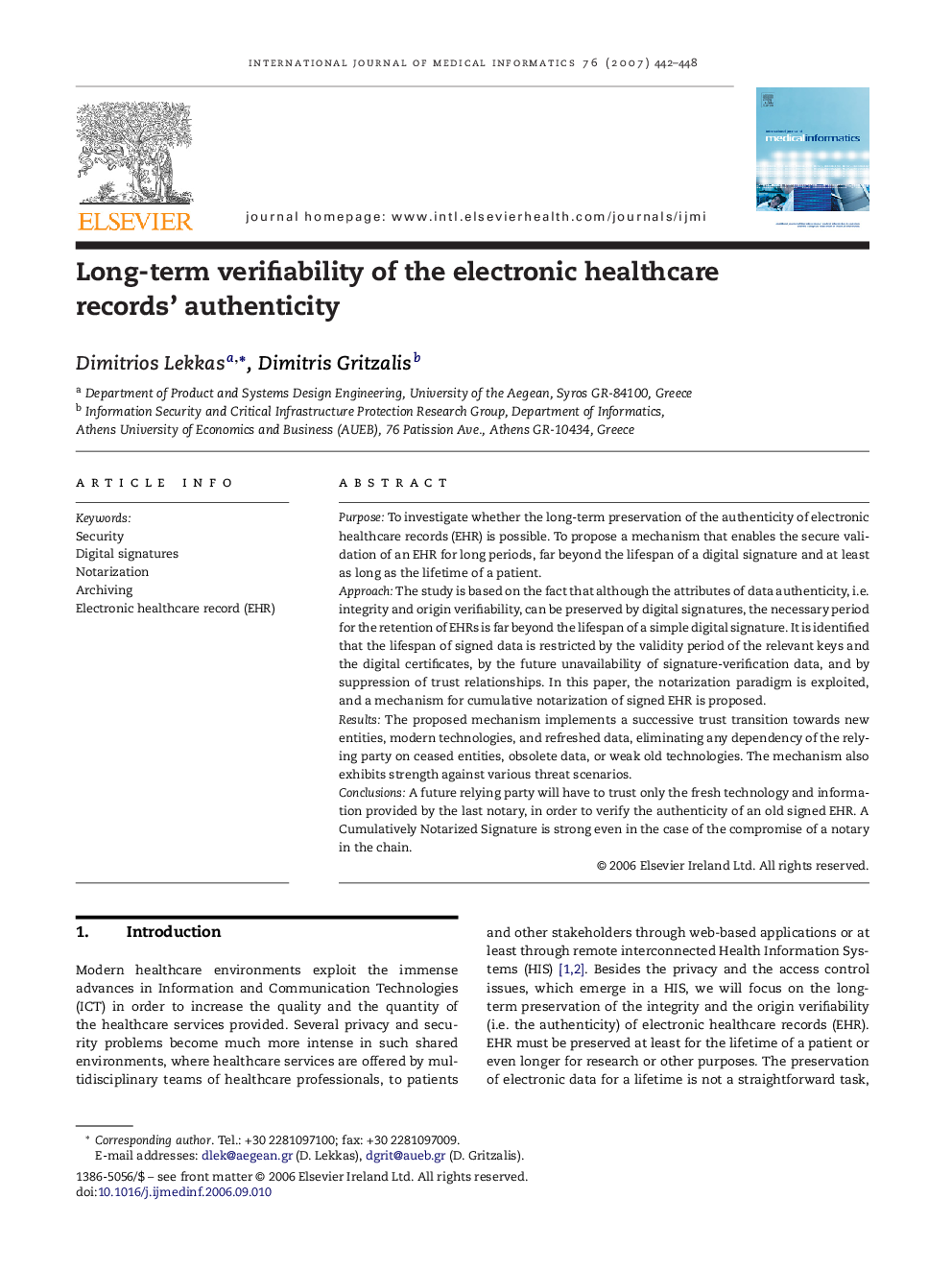| Article ID | Journal | Published Year | Pages | File Type |
|---|---|---|---|---|
| 517308 | International Journal of Medical Informatics | 2007 | 7 Pages |
PurposeTo investigate whether the long-term preservation of the authenticity of electronic healthcare records (EHR) is possible. To propose a mechanism that enables the secure validation of an EHR for long periods, far beyond the lifespan of a digital signature and at least as long as the lifetime of a patient.ApproachThe study is based on the fact that although the attributes of data authenticity, i.e. integrity and origin verifiability, can be preserved by digital signatures, the necessary period for the retention of EHRs is far beyond the lifespan of a simple digital signature. It is identified that the lifespan of signed data is restricted by the validity period of the relevant keys and the digital certificates, by the future unavailability of signature-verification data, and by suppression of trust relationships. In this paper, the notarization paradigm is exploited, and a mechanism for cumulative notarization of signed EHR is proposed.ResultsThe proposed mechanism implements a successive trust transition towards new entities, modern technologies, and refreshed data, eliminating any dependency of the relying party on ceased entities, obsolete data, or weak old technologies. The mechanism also exhibits strength against various threat scenarios.ConclusionsA future relying party will have to trust only the fresh technology and information provided by the last notary, in order to verify the authenticity of an old signed EHR. A Cumulatively Notarized Signature is strong even in the case of the compromise of a notary in the chain.
